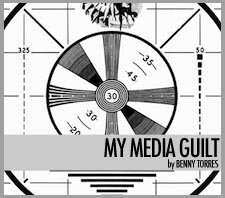Ali vs. Jobs: The Curse of Brand
Posted by Saneel Radia | February 5, 2010
I’ve been thinking about the iPad backlash and decided it isn’t because the device is subpar. Instead, the device is disappointing to many. When I ask myself why, I see a rare but significant problem for Apple: the Curse of Brand. It’s a syndrome that occurs when the expectations of a brand are so precise (and high) that it can only appease them in a very specific way. I thought of other brands that have suffered from the Curse of Brand and realized the same could be said of Muhammad Ali. In fact, looking at these two brands side by side, I’ve concluded Jobs strategically navigated this curse, while Ali did not.
Apple and Muhammad Ali are two of the most prolific brands in history. One is arguably the technology company with the most passionate following and the other was once the most famous athlete (if not man) in the world. Both dealt with the Curse of Brand. Apple did so with the launch of its iPad and Ali in his rivalry with Joe Frazier.
From 1967 to 1971 Ali was an undefeated boxer who was suspended from his sport because of his refusal to fight in the Vietnam War. During that period, Joe Frazier rose to prominence as the undefeated heavyweight champion. However, without having the opportunity to fight Ali, his title was marred by a cultural “asterisk.” Ali and Frazier eventually went on to fight three different times, Ali winning two.
What many people don’t know is that Ali and Frazier actually had a relationship prior to their first fight (Ali was reinstated, in part due to Frazier’s efforts on his behalf). The two considered themselves friends and, according to Frazier, he even loaned Ali money during his suspension. This is shocking for most people who only know the relationship as one of the bitterest rivalries in sports history. (Frazier in a recent documentary takes subtle credit for Ali’s Parkinson’s disease and coldly states that God gave Ali what he deserved).
How did this relationship end up here? Ali was consumed by the Curse of Brand. He was re-entering a sport he once dominated and was known for his provocative, charismatic shenanigans. The poetry with which he insulted rivals and rattled opponents was the calling card of this man who’d been out of the sport’s spotlight for years. So, what did Ali do upon his return? He attacked Frazier verbally with barbs that struck a deep chord (understandably, as he called Frazier everything from “gorilla” to “Uncle Tom” at a time when race relations in the U.S. were the tensest in history). He gave the crowd exactly what they wanted. The press ate up the sound bites, replaying them incessantly. His fan base and influence grew before each Frazier fight (there were three). Yet, Ali had acted in ways he later regretted. Not too publicly of course—it was Ali after all. But he did apologize to Frazier (indirectly) after the final epic fight and retracted comments he made in various pockets for years to come. He made bad decisions (by his own value system) because he believed he had to live up to a certain set of expectations.
Looking at the reaction to the iPad these last 2 weeks, it accomplished the opposite of any Ali press event. I was stunned that such a significant launch could elicit a reaction I can only summarize as a universal “meh” (a feeling Denuologist Caroline will fight for until her dying day). How could a brand viewed by many as incapable of doing wrong ever leave so many people shrugging? Apple’s pre-announcement hype was nothing short of frenzy. And understandably so. When Apple released the iPhone and Macbook Air, both devices extracted a global cooing sound from consumers. The iPad certainly did not. But it might have if it wasn’t an Apple product.
The iPad is an unprecedented device in terms of usage. It falls between phone and laptop, a rapidly growing space. Yet, because it’s a technology region between two existing, familiar points, people were left disappointed. So, the usage is new, but the device doesn’t feel new. Isn’t it just a big iPhone? Or just a cooler netbook?
Once again, it’s the Curse of Brand. If Apple is known for innovation and unprecedented design (see Apple’s brandtags here), this particular device actually suffered from the pre-launch buzz. It was innovative consumer usage, not innovative tech or design. Thus, expectations were inadvertently set by the brand long ago that the product couldn’t (and dare I say shouldn’t) deliver.
Which is exactly why I give Apple kudos. Time will tell, but I’m betting the iPad will be a success. It uniquely fits in a usage gap that only netbooks could feasibly occupy, and I just don’t think cloud technology has enough appeal to consumers yet (not to mention the hardware limitations as entertainment devices). Apple knew the expectations of its brand and still built a product many people don’t yet know they want. Think about it: the same could have been said of the iPod. The iPad is a highly strategic decision that deftly avoided the much bigger trap of succumbing to the pressure of its brand.
When I hear Jobs’ vision for the iPad, I see a man that isn’t letting the brand decide anything for him. His vision for the future is the core decision engine. That takes courage and a strong will in the face of detractors, two traits most people would attribute to Ali. However, Jobs applied these traits to challenge the Curse of Brand. Ali certainly did not. He left with a heavyweight title, but long-term regret about his decisions. I don’t think Jobs will have many regrets at all. In fact, I think he’ll retire with a title of his own: a man that better understood the role of brand than any company leader in history.
And that kinda makes me want to curse with envy.
Related Posts
Leave a Comment
RSS feed for comments on this post · TrackBack URI


